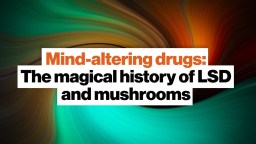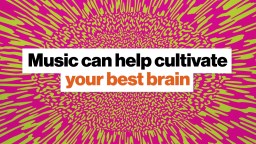neuroscience
It isn’t surprising, but what’s behind the straight-white-male hegemony?
Studying ‘episodic memory’ in animals may hold the key to understanding memory loss in humans.
A comprehensive interdisciplinary paper removes any doubt that orcas don’t belong in marine parks and zoos.
The remarkable distributed nervous system of the octopus is discussed at an astrobiology conference.
Barbara Tversky takes an outdated idea to task in Mind in Motion.
The more we learn about the microbiome, the more the pieces are fitting together.
Michael Pollan explains what goes on during the mental fireworks of a psychedelic experience.
▸
5 min
—
with
Think adrenaline leaves you unable to think clearly? Think again.
Even more intriguing is the reason: recognizing facial expressions.
Creating more neural circuits through visual landmarking not only benefits your spatial orientation, it could keep Alzheimer’s disease at bay.
Why did government officials stop psychedelics from reaching mainstream culture?
▸
22 min
—
with
Neuroscience is working to conquer some of the human body’s cruelest conditions: Paralysis, brain disease, and schizophrenia.
▸
5 min
—
with
Being bilingual has cultural, social, and cognitive benefits — so why are schools dropping language courses?
5-HTP could help both constipation and depression, but dosage matters.
Study finds that neurotic people deal with more “mental noise” than others.
Phrases like “Global warming” and “climate change” don’t carry any weight.
A new study finds such kids excel in all cognitive areas.
The neuralnanorobotics are coming.
A balanced discussion of the realities, the mythologies, and the concerns surrounding cutting-edge brain research.
They seem to have a mechanism for caring similar to ours.
Do you have a magnetic compass in your head?
A new method of growing mini-brains produces some startling results.
Americans lost $116.9 billion gambling in 2016.
Using a new process, a mini-brain develops retinal cells.
Being on shaky financial footing is making Americans dumber.
▸
4 min
—
with
If you have a strong imagination, this won’t help you with academic study.
A new book on the music distribution service claims it is.
Soon, parents may be able to prescribe music to their kids to help them focus.
▸
7 min
—
with





























